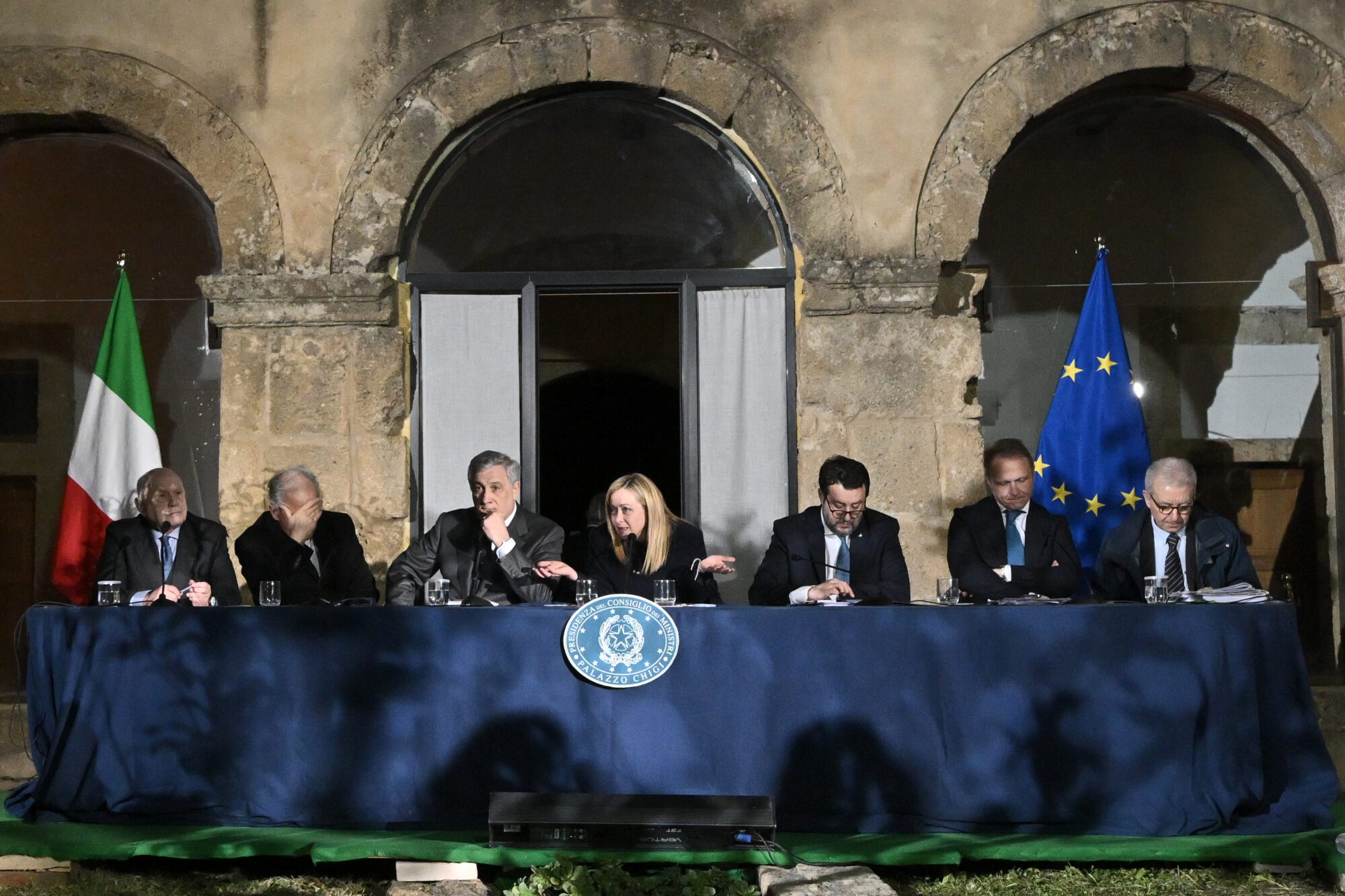
PM Meloni (center) and Italian government officials during the first announcement of the soon-to-be updated measures, March 2023.
Tiziana Fabi / AFP
Italian Prime Minister Giorgia Meloni announced the beginning of a new long-term diplomatic and legal strategy, dubbed the Cutro decree, which will see the implementation of new rules that would reduce the flow of illegal immigration, facilitate returns, and put an end to Italy being the busiest arrival point of global migration, the local daily Il Giornale reported on Thursday, August 31st.
“I decided to fully implement the Cutro decree on returns. We will bring new rules but I think more coordination is needed in the government, both nationally and internationally,” the Prime Minister stated.
The Cutro decree, named after the maritime disaster that claimed the lives of 89 refugees in February, was first proposed by the government in early March and adopted by both chambers of Parliament over the following months.
The package includes new legislation that severely increases the punishment for human trafficking (up to 30 years in prison), and takes away many of the legal incentives that propel migrants to use illegal channels, such as providing special asylum rights even to people who would not qualify for it under EU law. Those who cannot prove their right to stay will have to turn back.
But even with full implementation, the results will take time to become visible, the PM warned, asking her constituency to remain patient.
It’s a huge, long job that will eventually pay off. But in the meantime, we are under tremendous pressure, and I understand that the Italians are demanding immediate answers.
Beyond the initial details set in motion half a year ago, the plan will involve major diplomatic efforts as well. Meloni said her government is in continuous dialogue with certain European partners, as well as origin and transit countries to help speed up deportations.
At the same time, the PM confirmed that “further regulatory measures to combat illegal migration and human trafficking” are currently being developed in addition to those initially outlined in the Cutro decree, in order to prevent the exploitation of any loopholes in the law.
After an unprecedented summer in terms of arrivals, it’s no wonder why Meloni’s conservative government is going full in on illegal migration. After all, the biggest contributor to her sweeping electoral success last year was her uncompromising stance on the crisis which has been in full force since 2015.
But now, less than a year into her term, Italians have had to face shocking numbers. Illegal arrivals into Italy in 2023 surpassed 100,000 in early August, while last Saturday’s tally shattered all previous records, as over 3,000 migrants landed in the country over the course of 24 hours.
As a consequence, asylum centers are overloaded and on the brink of collapse, personnel and resources are overstretched, and the Italian voters are wondering if there was even a point in electing Meloni and her Fratelli d’Italia if they have nothing to show for it.
Of course, Meloni stressed in her speech, that the responsibility to solve the crisis is not Rome’s alone. “The change of pace is because today the EU discusses first how to fight illegal immigration on Mediterranean routes and then how to distribute migrants. In past years only the latter part was discussed,” the premier explained.
Understandably, Meloni asked all other parliamentary factions to join in the effort. “The problem goes beyond political color,” she said, “Migration flows out of the ordinary.” Matteo Salvini, deputy PM and head of the second-largest conservative group, Lega, confirmed his support for Meloni’s plan, saying that “a new security decree is needed as early as September because Italy cannot be the arrival point for migrants from halfway around the world.”
